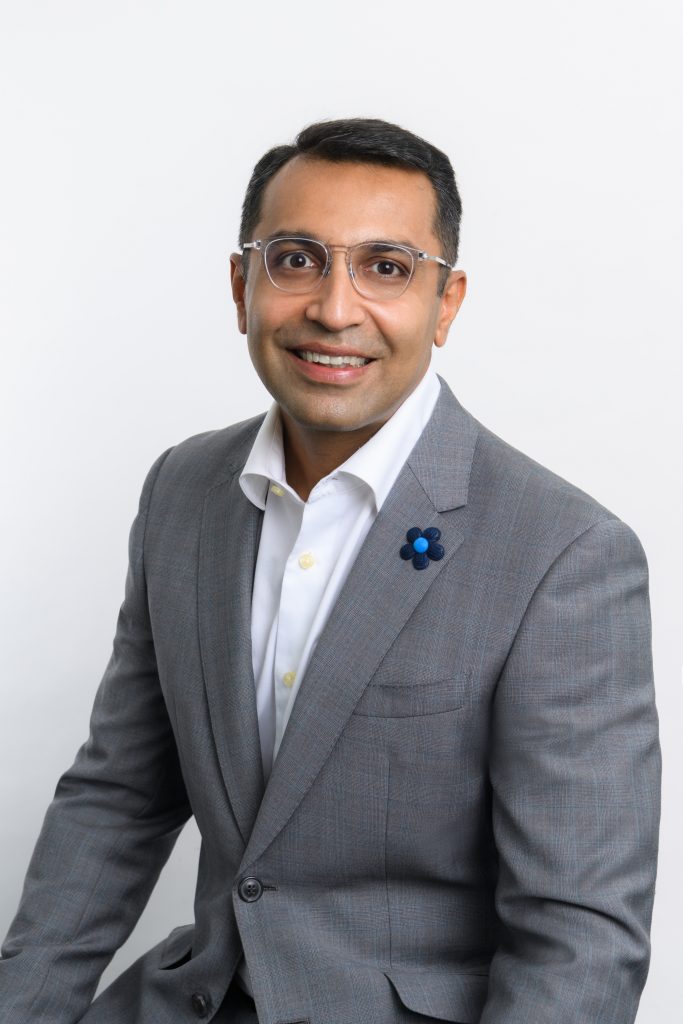On the lighter side of things we ask Terry Smagh, Senior Vice President and General Manager Asia Pacific/Japan, BlackLine, about what makes him tick.

What would you describe as your most memorable achievement?
I’ve known some of the people on my team for a long time and seeing them succeed is enormously satisfying. For example, one of our senior guys at BlackLine started working for me as a junior rep at Qlik, back in 2010. Eleven years and two companies later, he’s leading a large Asia Pacific sales team. I take a lot of pride in how well he’s doing and the accolades he’s garnered.
What first made you think of a career in technology?
Nothing in the home environment! I come from a family of lawyers and doctors and in my young years was often compared unfavorably with my brother, who is a barrister at Middle Temple in London. I knew I didn’t want to spend my life in a wig or at university for seven years studying medicine – I love fixing things but not people! – so when I came to Melbourne as an exchange student in 1992 it was to do a marketing degree.
It was interesting enough but connectivity and information systems seemed even more interesting, so I veered down that path and haven’t looked back. To this day though, if anyone asks my mother what her younger son does for a living, she says: ‘Terry fixes computers’!
What style of management philosophy do you employ in your current position?
I don’t think anyone’s ever accused me of being a micro-manager. I like to give people very clear goals and a lot of autonomy in terms of how they achieve them. Continuous learning is also something I’m passionate about – for myself and my team. You don’t know what you don’t know and that’s why I love it when people are curious and ask questions.
What do you think is the current hot technology talking point?
There’s nothing positive about the pandemic but one of its side effects has been the way it’s pushed organizations to embrace automation. Cloud and digital technologies are not new but until COVID struck there were plenty of laggards. That’s changed utterly over the last few months. ‘Innovate or exit’ is the new catch cry and we’re seeing companies belatedly – and urgently – looking for opportunities to automate across every aspect of their operations.
How do you deal with stress and unwind outside the office?
Finding time to unwind has been a priority for me over the past 12 months. I block off 90 minutes first thing in the morning or late in the evening and take a yoga class, head to the gym or run. Yoga I found tough at first – my mind was never at ease – but I’ve stuck with it and it’s been really beneficial, mentally and physically. Getting some balance in your life is incredibly important and I’ve come to realize it’s also quite doable. If you’re efficient, a solid eight or 10 hours a day should be more than enough time to manage your team, your clients and your business. Not bringing your phone to the bedside is also wise!
If you could go back and change one career decision, what would it be?
There was a ‘fork in the road’ moment back in 2004 which occasionally makes me wonder ‘what if?’ The head of ING Private Banking was a client and he suggested I’d make a good relationship manager. At the time, I didn’t give it too much thought. There was a lot going on in the digital space and I honestly thought investment banking would be boring by comparison – selling financial products to people. I developed a better understanding of the industry over the years and if I had my time again, it’s possible I might consider my options a little more thoroughly.
What do you currently identify as the major areas of investment in your industry?
People. So many companies are in a tech frenzy at the moment. They want to automate, digitize, adopt new applications to help them stay ahead. None of that can happen if you don’t have the right talent on board. That’s why we haven’t laid anyone off at BlackLine through the pandemic – we believe a strong team will be critical to success over the next few years.
What are the region specific challenges when implementing new technologies in APAC?
Adoption is the on-going one. Australia and New Zealand are mature markets when it comes to ICT but some ASEAN countries, such as Indonesia and The Philippines, are less ready to embrace new technologies, or they lack the infrastructure to support them. For that reason, we don’t always have access to some of the really cool start-ups and solutions coming out of Silicon Valley – the opportunity and demand aren’t there to support them investing in establishing a presence in our region.
What changes to your job role have you seen in the last year and how do you see these developing in the next 12 months?
COVID has made me engage with my team differently. It’s been a tough time for a lot of people and we’ve talked extensively about mental wellbeing, as well as work. Not everyone in our part of the world has the luxury of living in a house; a lot of people in Asia are in apartments with extended families and being in lockdown can be pretty claustrophobic. Looking ahead, COVID doesn’t look like going away any time soon but I see next year being one of great change. Our company is expanding and I’ll be looking to hire people who are resilient and resourceful and ready to tackle the wave of opportunities we see coming our way.
What advice would you offer somebody aspiring to obtain a C-level position in your industry?
Learn to look beyond the pitch you’re presenting or the solution you’re selling. Understanding the challenges and needs of the customer will help you engage more effectively with senior decision makers and get you a lot further. I’m also a big believer in helping people in your network whenever you can, without expecting to get something back straightaway. Have that meeting or coffee, do that favor. It’s a small world and people remember. If you’ve paid it forward, others will do the same to you.
Click below to share this article

